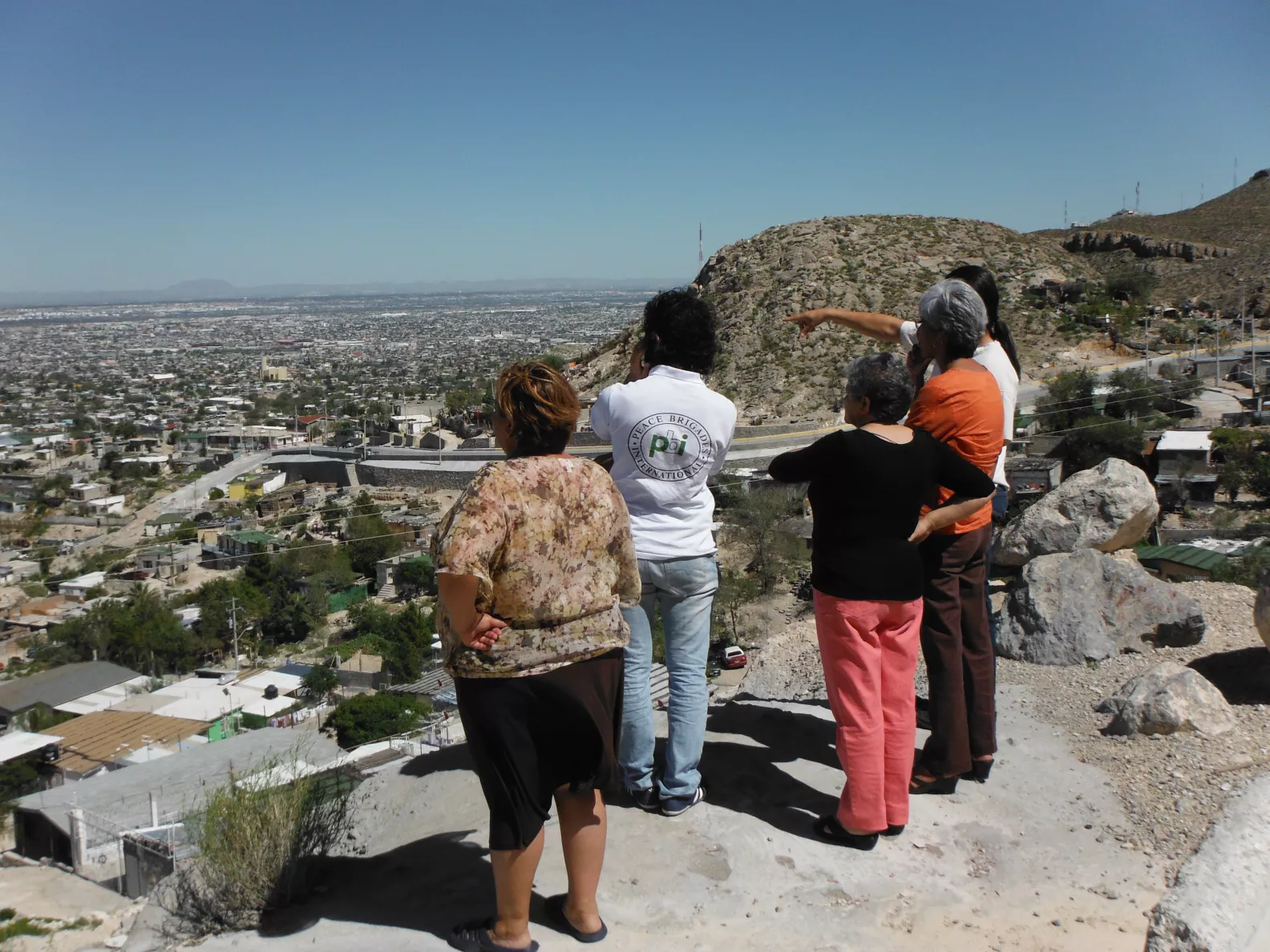
PBI’s work is based on the method of international accompaniment – a strategy pioneered by PBI to protect human rights defenders who face risks due to their work. The accompaniment model is based on a logic of international physical presence, pressure and interest.
International accompaniment is also based on the idea of dissuasion. PBI’s presence seeks to dissuade violence against defenders and, in this way, contribute to the protection of their spaces for action.
In order to ensure permanent field presence, PBI sends teams of international volunteers specially trained to accompany defenders and collectives in conflict zones.
PBI’s accompaniment is the expression of international concerns for the security and wellbeing of at-risk human rights defenders. Its immediate objective is to guarantee that defenders can carry out their work free from attacks, harassment, criminalisation or threats.
In the long term, PBI’s presence aims to contribute to the realisation of the right to defend human rights, to improve the human rights context in the country, and to promote an inclusive social fabric, allowing the development of a culture of peace and justice.
This model is based on the belief that human rights defenders are crucial agents for peacebuilding, the promotion of human rights, and democratic consolidation in their societies. PBI does not seek to supersede local initiatives or interfere with their work for justice and peace. PBI’s international accompaniment is focused on supporting people and collectives which work for such ends – they are the ones who know local needs best.
The effectiveness of international accompaniment depends on establishing positive relationships with key actors (at the local, national and international levels), good knowledge of local context, formation of support networks, and awareness raising about the realities affecting the work and security of human rights defenders. In fact, PBI’s physical presence is only one tool among several that characterise PBI’s international accompaniment.
This is why PBI focuses on a series of work areas: physical accompaniment to defenders, political advocacy with key actors in the country and abroad, information gathering and analyses, formation of support networks, and capacity-building on protection and advocacy for human rights defenders.
These work areas are more effective when combined, always depending on the needs and priorities expressed by the accompanied defenders. The combination of our field presence – which allows us to have a profound understanding of the local context – and international advocacy gives us a unique vision and voice within the human rights world and effectively bridges the gap between at-risk defenders and those with the obligation (Mexican state) and responsibility (international community) to protect them.
Our permanent field presence gives us access to first-hand information and to dialogue opportunities with key actors who can ensure that local and international protection mechanisms are fit for the real needs of people at risk. Moreover, it allows the international community to respond quickly and effectively to support requests made by Mexican civil society.
A central part of PBI’s work is the ongoing personal contact with human rights defenders and communities, which provides crucial moral support and a sense of human solidarity.
